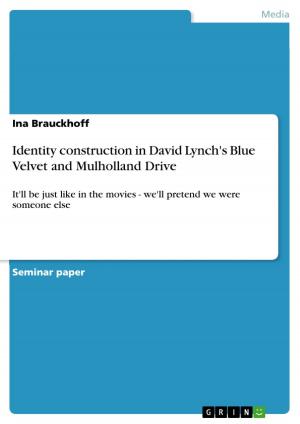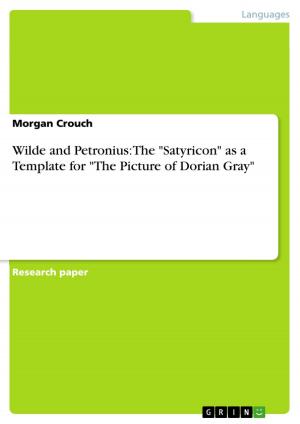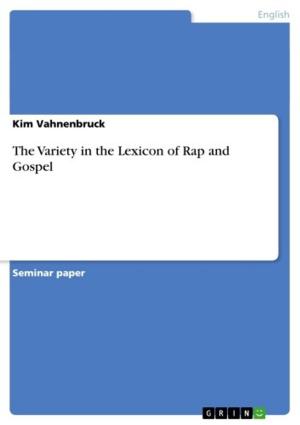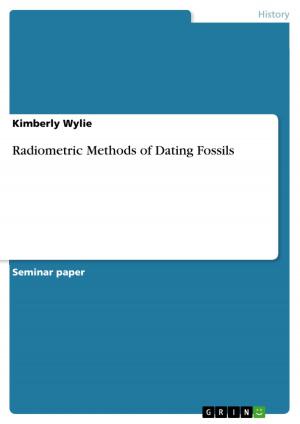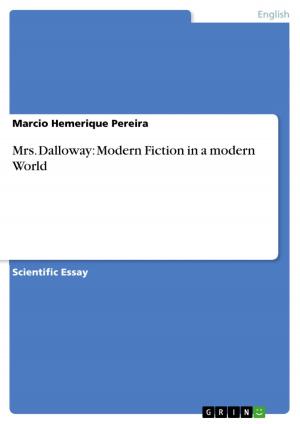Gulliver's conversion into a reasonable horse and his upcoming hate towards mankind
An investigation of Jonathan Swift's 'Gulliver's Travels'
Fiction & Literature, Literary Theory & Criticism, British| Author: | Jascha Walter | ISBN: | 9783640348442 |
| Publisher: | GRIN Publishing | Publication: | June 16, 2009 |
| Imprint: | GRIN Publishing | Language: | English |
| Author: | Jascha Walter |
| ISBN: | 9783640348442 |
| Publisher: | GRIN Publishing |
| Publication: | June 16, 2009 |
| Imprint: | GRIN Publishing |
| Language: | English |
Seminar paper from the year 2006 in the subject English Language and Literature Studies - Literature, grade: 2,7, University of Hamburg, language: English, abstract: The following essay deals with the misanthropy of the protagonist Lemuel Gulliver from Jonathan Swift's Gulliver's Travels. The question, whether the protagonist's hate towards mankind can be equated with a possible misanthropy of the author shall not be discussed here. Likewise, the topic of the author's conception of man will not be examined. The author's intentions are deliberately excluded to keep the focus on the narrative's interpretation and relevant secondary literature. Therefore, Swift's satirical intentions regarding the portrayal of the main character Gulliver will not be taken into account either. Since Gulliver's self-knowledge, which makes him become a misanthropist was one of the most discussed issues regarding the reception of Gulliver's Travels, I want to investigate the reasons, motivations and stages of Gulliver's conversion, find possibly crucial experiences that lead to his cognition and scrutinize, whether his development is portrayed as credible or not. In the first part I will scrutinize Gulliver's attitude to the Houyhnhnms and the influence of his expulsion on his morale. In the second part of my essay I will concentrate on Gulliver becoming a misanthrope and the way his new conception of man is shaped.
Seminar paper from the year 2006 in the subject English Language and Literature Studies - Literature, grade: 2,7, University of Hamburg, language: English, abstract: The following essay deals with the misanthropy of the protagonist Lemuel Gulliver from Jonathan Swift's Gulliver's Travels. The question, whether the protagonist's hate towards mankind can be equated with a possible misanthropy of the author shall not be discussed here. Likewise, the topic of the author's conception of man will not be examined. The author's intentions are deliberately excluded to keep the focus on the narrative's interpretation and relevant secondary literature. Therefore, Swift's satirical intentions regarding the portrayal of the main character Gulliver will not be taken into account either. Since Gulliver's self-knowledge, which makes him become a misanthropist was one of the most discussed issues regarding the reception of Gulliver's Travels, I want to investigate the reasons, motivations and stages of Gulliver's conversion, find possibly crucial experiences that lead to his cognition and scrutinize, whether his development is portrayed as credible or not. In the first part I will scrutinize Gulliver's attitude to the Houyhnhnms and the influence of his expulsion on his morale. In the second part of my essay I will concentrate on Gulliver becoming a misanthrope and the way his new conception of man is shaped.

